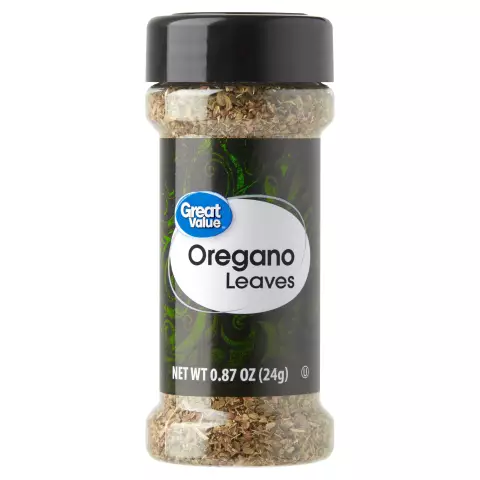- Author Rachel Wainwright [email protected].
- Public 2023-12-15 07:39.
- Last modified 2025-11-02 20:14.
Caloric content of nectarine

Nectarine is a smooth-skinned peach tree native to China. This fruit received this name due to the high content of sugar - nectar in its fruits.
The sweet, tasty and juicy nectarine belongs to the genus Prunus, a large group of trees including plums and almonds. Nectarine, the calorie content of which is negative, is appreciated all over the world for its juiciness, fragrant aroma and unique taste.
The seeds of some varieties of nectarine, the calorie content of which is 44 kcal per 100 g, serve as raw materials for the preparation of medicines, ointments and activated carbon.
In cooking, nectarine is preferably used raw, dried, frozen and canned; it is used to make delicious and healthy jams and preserves.
Useful properties of nectarine
The composition of nectarine, which is quite low in calories, contains a concentration of antioxidant enzymes such as vitamins A and E, flavonoids, polyphenolic compounds, lutein, zeaxanthin and beta-cryptoxanthin. These compounds act in the body as protective scavengers of free radicals and reactive oxygen species, which lead to rapid aging of the body and various disease processes. These vitamins are also essential for maintaining healthy mucous membranes and skin.
Nectarine, whose caloric content, as we have already said, is 44 kcal per 100 g, is an excellent source of vitamin C, which has powerful antioxidant properties and is necessary for the synthesis of connective tissue in the human body. Consuming fruits rich in vitamin C helps the body build resistance against infectious diseases as well as eliminate harmful free radicals.
The yellow pulp of nectarine, which is low in calories, is rich in bioflavonoids, especially carotenoids. These pigments are antioxidants that help protect the body against cancer and other diseases by reducing the cellular damage that occurs when the body burns oxygen. The antioxidants in nectarine, which include vitamins A, C and beta-carotene, have been shown to reduce the risk of cancer.
Low-calorie nectarines are ideal food for people looking to lose weight. It is free of saturated fat and helps to manage hunger and control weight.
Nectarines are a good source of potassium and fiber, which are nutrients that support the immune system and promote healthy cholesterol levels in the body.
Nectarine, which is slightly higher in calories than its peach counterpart, does not contain saturated fat. The fruits are a source of B-complex vitamins, minerals, niacin, pantothenic acid, thiamine and pyridoxine. In addition, they contain an appropriate ratio of minerals and electrolytes such as potassium, iron, zinc, copper and phosphorus. Iron is essential for the formation of red blood cells. Potassium is an essential component of cells and body fluids that help regulate heart rate and blood pressure.
How many calories are in nectarine: nutritional and energy value
The calorie content of nectarine allows the fruit of this tree to be used as a dietary product, since the body will spend much more energy on their assimilation than it will receive from their use.
Nutritional value and caloric content of nectarine per 100 g of fruit is:
- Proteins - 1.06 g;
- Fat - 0.32 g;
- Carbohydrates - 8.85 g;
- Dietary fiber - 1.7 g;
- Ash - 0.48 g;
- Starch - 0.07 g;
- Water - 87.59 g;
- Caloric content of nectarine - 44 kcal;
- Mono- and disaccharides - 7.89 g;
- Saturated fatty acids - 0.025 g;
- Beta-carotene - 0.15 mg;
- Retinol (vitamin A) - 17 mcg;
- Thiamin (vitamin B1) - 0.034 mg;
- Riboflavin (vitamin B2) - 0.027 mg;
- Pantothenic Acid (Vitamin B5) - 0.18 mg;
- Pyridoxine (vitamin B6) - 0.025 mg;
- Folic acid (vitamin B9) - 5 mcg;
- Ascorbic acid (vitamin C) - 5.4 mg;
- Tocopherol (vitamin E) - 0.77 mg;
- Zinc - 0.17 mg;
- Phylloquinone (vitamin K) - 2.2 mcg;
- Vitamin PP - 1.12 mg;
- Copper - 86 mcg;
- Potassium - 201 mg;
- Calcium - 6 mg;
- Choline - 6.2 mg;
- Magnesium - 9 mg;
- Iron - 0.28 mg;
- Phosphorus - 26 mg;
- Manganese - 0.05 mg.
Calorie content of nectarine: the benefits of fruit for weight loss

Everyone knows that low-calorie fruits are a good choice when it comes to weight loss. They do not contain fat, they can be consumed both as a separate product and used in the recipe of various dishes. Low-calorie nectarines are a particularly good choice for those looking to lose weight. They are delicious, juicy, and contain many different vital vitamins.
Eating nectarines as part of a balanced, low-calorie diet can help you lose weight quickly. In most low-calorie diets, the amount of fruit that is allowed to be consumed per day ranges from one to one and a half cups per day, while the total calorie intake per day should not exceed 1200 kcal. If you eat too much fruit, then regardless of how many calories are in nectarine (and it contains few of them), instead of losing weight, you can, on the contrary, gain excess weight.
The low calorie content of nectarine allows this fruit to be used for snacks on various diets. In addition, this fruit has a negative calorie content.
While nectarines are rich in many nutrients, they are virtually devoid of protein, which plays a key role in keeping you feeling full after eating. This means that when using this fruit for weight loss, to increase satiety and increase weight loss, you need to eat dietary meat, fish, various protein foods, dairy products and vegetables.
So, for those who are puzzled by the question of how to lose weight quickly, nectarines are becoming an indispensable product for weight loss. It is important to understand that only adults and absolutely healthy people can follow any diet.
The low calorie content of nectarine allows this fruit to be used as a product for fasting days. The high content of fiber, vitamins and macronutrients in the fruits of nectarine allows you to maintain a feeling of fullness throughout the entire fasting day.
The use of nectarine promotes quick and simple, without starvation, shedding excess body weight, strengthening immunity, preventing many colds, improving vision, strengthening memory, it neutralizes problems with the gallbladder, normalizes metabolism, helps cleanse the gastrointestinal tract and cleanse the body of toxins.
By using low-calorie nectarines in your diet, you can lose 3-4 kg per week. At the same time, it is important to remember that you should not overeat with this fruit, otherwise, instead of losing weight, the result of the diet may be gaining excess weight.
Found a mistake in the text? Select it and press Ctrl + Enter.






